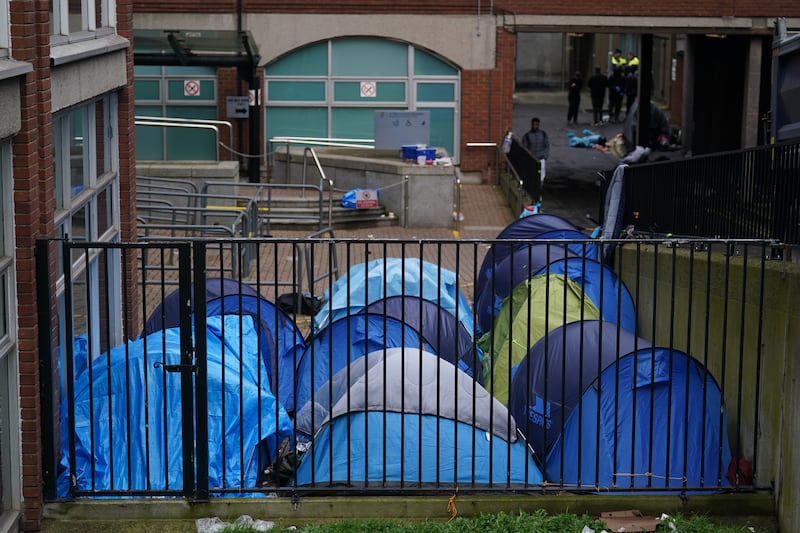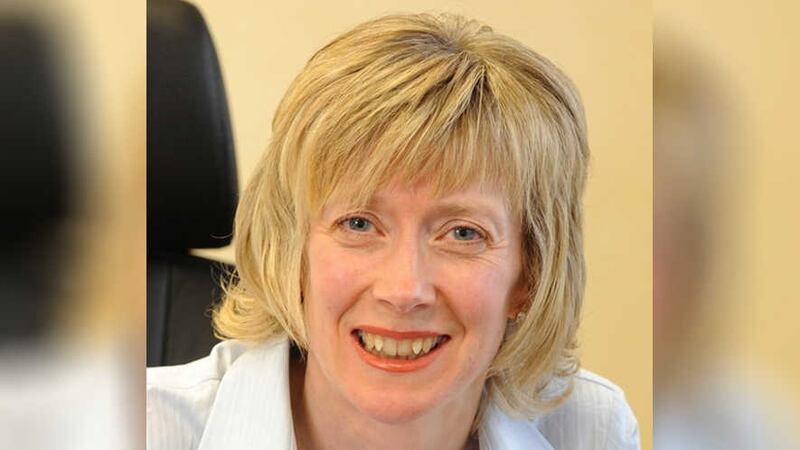Ireland may decide to “take on more” asylum seekers from other EU countries under a new pact, according to the justice minister.
Helen McEntee made the comments after the European Parliament voted to approve the EU Pact on Migration and Asylum which includes controversial measures: facial images and fingerprints could be taken from children from the age of six, and people may be detained during screening.
It also includes measures on faster decision-making and the sharing of responsibility across member states which could see relocation of international protection applicants or the payment of financial contributions to the EU.
Ms McEntee said: “In terms of burden-sharing, we will never be asked to accept more than our fair share.
“And it’s not that we have to accept people – we can provide financial support, we can provide expertise and knowledge. We decide that, it’s not forced upon us.
“But it might be a case where we say: ‘Well, you know what, we absolutely feel another country that’s seen a massive influx of people, we feel more capable and we’re able to take on more.’ But that’s a decision that we can make.
“But also we’re going to be given financial assistance. So if we don’t opt into this, we don’t have access to the billions of euro that will be made available to help us improve our systems for faster processing and for housing to support people in general.”
The justice minister said the EU was not developing a UK-Rwanda style scheme or a plan for detaining and deporting children to third countries.
She said: “When it comes to Rwanda, that’s not what we’re talking about here. And that’s not a proposal that I would support, to be quite frank.”
Ms McEntee described the pact as a “game-changer”.

She said: “It means that as a country, firstly, we’re not dealing with this on our own.”
Ms McEntee said there would be a greater gathering of information of migrants in the first EU country they land in, and that data would be shared among member states including Ireland.
“So we’ll have a clearer picture of who’s there, who’s coming, but also if there are risks – if there are people coming who pose a risk as well.”
Ms McEntee said the pact would also mandate faster processing time frames from between two-to-six months depending on the circumstances of the arrival.
The justice minister said that the agreement would assist in the 50% of cases where international protection applicants in Ireland had already sought or been given protection in another country.
She added: “If we don’t opt into this, our ability to say: ‘You must return to the country that you’ve been given protection’ – it doesn’t exist.
“We can’t expect other member states to take back people to their country if we say: ‘We’re not going to join, we’re not going to show solidarity, we’re going to go it alone, we’re going to do it on our own.’ So it’s really important.”
The number of asylum seekers arriving in Ireland has increased significantly in recent years.

There were 13,000 asylum applications in Ireland in 2022, a 415% increase compared with 2021.
More than 100,000 Ukrainians have arrived in Ireland since the Russian invasion of Ukraine in February 2022 – the same amount projected to arrive in Ireland over a 30-year period.
Amid a long-running housing supply and affordability crisis, the Irish Government has struggled to find suitable accommodation for asylum applicants.
According to the most recent official figures, 1,700 people who have applied for international protection in Ireland are still waiting for an offer of accommodation.
The shortage of accommodation has resulted in asylum seekers setting up a makeshift camp outside the International Protection Office in Dublin city, where they have slept in rain and snow in recent months.
Opposition parties have criticised the Government for its failure to house all asylum seekers.
However, there has also been anti-migration protests against the Government.
Additionally, there have been several incidents of suspected arson at buildings earmarked for use for asylum-seeker accommodation.
Eve Geddie, Amnesty International’s head of the European Institutions Office and director of advocacy, said the EU was “shamefully co-signing an agreement that they know will lead to greater human suffering”.
She added: “For people escaping conflict, persecution or economic insecurity, these reforms will mean less protection and a greater risk of facing human rights violations across Europe – including illegal and violent pushbacks, arbitrary detention and discriminatory policing.”









